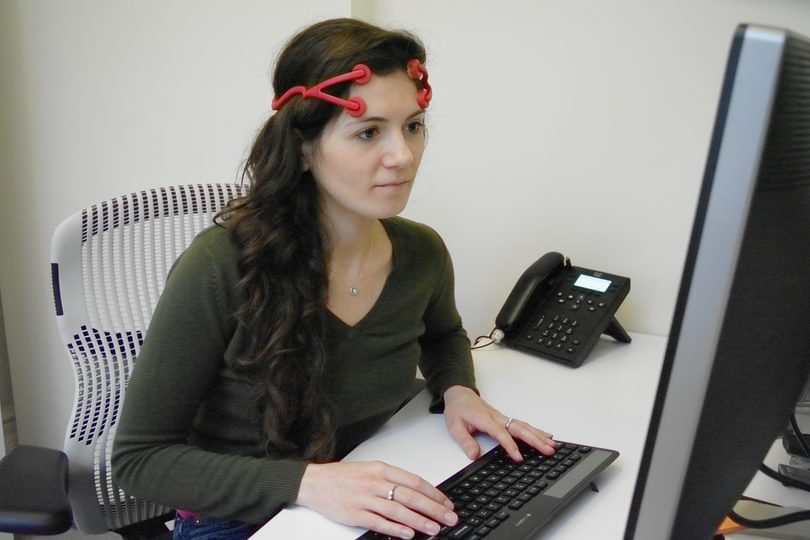
Cognitive enhancement technologies raised hope in boosting healthy brain functioning, increasing mental capacity, speed, and creativity, through use of electrical and magnetic currents. How do these technologies work? How is the brain affected? And what are the ethical and societal implications of their use? Professor Roi Cohen Kadosh, Professor of Cognitive Neuroscience at the University of Oxford, and Dr Hannah Maslen, Postdoctoral Research Fellow in Ethics at the University of Oxford, will examine what happens when we combine mind and machine.
Join in on Twitter #tomorrowtech
This event will be live streamed on our YouTube channel
About the speakers
Roi Cohen Kadosh is a Senior Research Fellow in Psychology and Professor of Cognitive Neuroscience at The University of Oxford.
He studied at Ben-Gurion University, Israel, obtaining a BA in Behavioural Sciences and a PhD in Neuropsychology (summa cum laude), while completing a European Diploma in Cognitive Brain Sciences (EDCBS). During this period he also received clinical training as a neuropsychologist at Beit Loewenstein, one of the best rehabilitation centres in Israel.
From 2006 to 2009 he was a postdoctoral fellow at the Institute of Cognitive Neuroscience, UCL, which was funded by the Yad-Hanadiv/Rothschild Foundation, the International Brain Research Organization, and the European Union (Marie Curie Fellowship). In 2009, he joined the University of Oxford as a Wellcome Research Career Development Fellow and set up the Cohen Kadosh lab in the Department of Experimental Psychology where he continues work on mathematics and the brain, as well as other questions in cognitive neuroscience.
He joined Jesus College, Oxford in 2011 as a Junior Research Fellow and as a Hugh Price Fellow in 2014, and has received several prestigious prizes in psychology and neuroscience including the Sieratzki-Korczyn Prize for Advances in the Neurosciences (2009), the Career Development Award from the Society for Neuroscience (2010) for his work on the neural basis of numbers in the parietal cortex, the Paul Bertelson Award (2012) from the European Society for Cognitive Psychology for an outstanding contribution to cognitive psychology in Europe, the British Psychological Society's Spearman Medal for outstanding contributions to psychology (2014), and the Scholar Award from the James S McDonnell Foundation (2014).
In 2015 he was appointed Professor of Cognitive Neuroscience by the University of Oxford.
Hannah Maslen is a James Martin Fellow on the Oxford Martin Programme on Mind and Machine, and a Postdoctoral Research Fellow in Ethics at the University of Oxford.
Hannah’s academic background is in philosophy, psychology and law: she received her BA in PPP from Oxford in 2007, her MSc in Criminology and Criminal Justice from Oxford in 2008, and her DPhil from Oxford in 2011.
Her current research focuses on the ethical, legal and social implications of various brain intervention technologies, but she works on a variety of topics within applied philosophy and ethics, spanning neuroethics, medical ethics, moral emotions, philosophy of punishment and criminal justice.
Previously, Hannah worked on the NWO-funded project ‘Enhancing Responsibility: the Effects of Cognitive Enhancement on Moral and Legal Responsibility’. She also continues to write on topics in sentencing and penal theory and has recently had her book on remorse and retribution published (Hart Publishing).
Her current research position is associated with the Oxford Martin School’s Progamme on Mind and Machine, and the Oxford Uehiro Centre for Practical Ethics. The aim of this project is to examine various brain intervention and interface technologies, from brain stimulation devices, to optogenetics, to virtual reality and immersive technologies. her research examines the ethical, legal and social implications of these technologies.